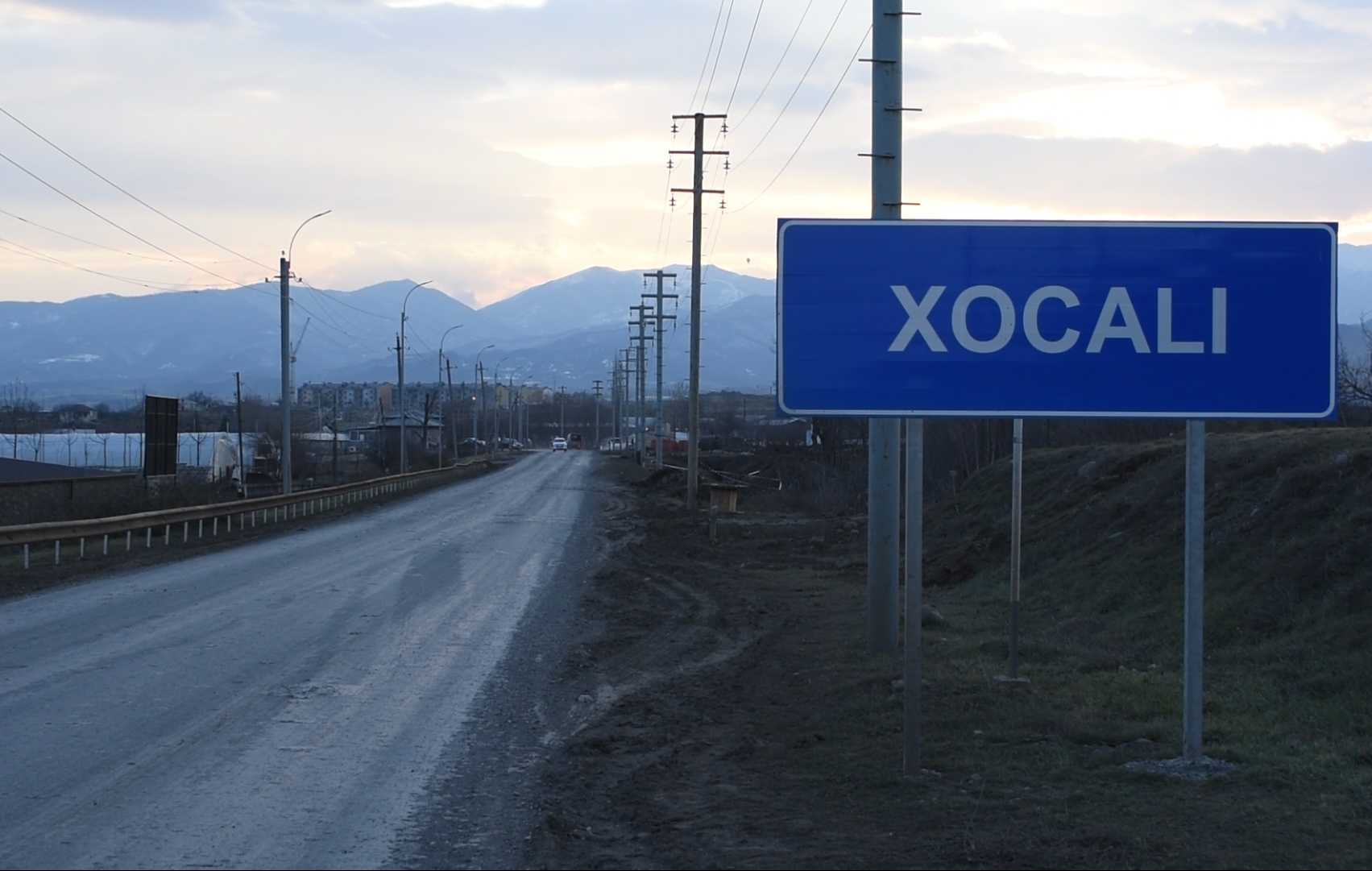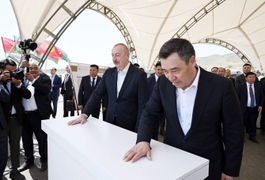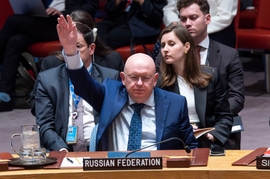The first residents are set to return to the liberated town of Khojaly, in Azerbaijan’s Karabakh (Garabagh) region, in May of this year.
As many as 500 houses are under restoration currently in anticipation of the resettlement, Shahmar Usubov, Head of Khojaly District Executive Power, told the media on Wednesday as he detailed the ongoing extensive reconstruction efforts in the region.
An initial group of 50 families is expected to relocate to Khojaly in May, marking a significant milestone in the area's recovery process.
The relocation comes after a prolonged period of hardship for Khojaly, which was occupied on the night of February 25-26, 1992, during a tumultuous period in the region's history.
The occupation was marked by the tragic events of the Khojaly Genocide, where Armenian forces committed atrocities against Azerbaijani civilians. This dark chapter in the district's history resulted in significant loss of life and displacement of the local population, leaving a lasting impact on the community.
During the attack on Khojaly, the Armenian armed forces killed 613 ethnic Azerbaijanis, including 106 women, 63 children, and 70 elderly people. They took 1,275 as hostages. Another 150 Azerbaijani nationals went missing, and their fates remain unknown to this day. Those suffering major injuries totaled 487, including 76 children. The bloodshed facilitated Khojaly’s invasion, which fell under Armenia’s occupation on February 26, 1992.
The Khojaly Genocide is considered one of the bloodiest massacres committed by Armenia against ethnic Azerbaijanis as part of the military campaign in the Karabakh region from 1991-1994. Following the Soviet Union’s dissolution in 1991, Armenia launched a military campaign against Azerbaijan. The bloody war lasted until a ceasefire was reached in 1994 and saw Armenia occupying 20 percent of Azerbaijan’s internationally recognized territories. Over 30,000 Azerbaijanis were killed, nearly 4,000 went missing, and one million were expelled from those lands in a brutal ethnic cleansing campaign conducted by Armenia.
Armenia’s refusal to withdraw its forces from the occupied lands pushed the two nations closer to a new military phase of the conflict. On September 27, 2020, the longstanding conflict reignited when Armenia’s forces, stationed illegally in occupied Azerbaijani lands, attacked military positions and civilian settlements of Azerbaijan. In a 44-day counterattack, Azerbaijani forces liberated more than 300 settlements, including the cities of Jabrayil, Fuzuli, Zangilan, Gubadli, and Shusha, from Armenian occupation. The war concluded on November 10, 2020, with a tripartite statement signed by Armenia, Azerbaijan, and Russia. Under this agreement, Armenia returned the occupied Aghdam, Kalbajar, and Lachin districts to Azerbaijan.
Certain parts of Khojaly and Khojavand districts, as well as the city of Khankendi remained within the temporary monitoring zone of the Russian peacekeeping mission deployed in certain parts of the Karabakh region after the 2020 war.
Despite the legally binding demands on the withdrawal of the Armenian forces from the Karabakh region of Azerbaijan, the largest portion of the troops was stationed in Khankendi along with the other settlements, including Khojaly, Aghdara, Khojavand, and Asgaran. The peacekeepers failed to enforce the withdrawal despite their relevant obligations.
Azerbaijan Armed Forces launched on September 19, 2023, a one-day local anti-terrorist measure to neutralize illegal Armenian armed formations and their military infrastructure in the Karabakh region. On September 20, the illegal separatist regime requested through the Russian peacekeeping command to cease the local anti-terror activities by agreeing to withdraw and complete disarmament of the Armenian armed formations.
These efforts successfully reclaimed Khojaly from occupation, paving the way for the rebuilding and rehabilitation of the area. The Azerbaijani government has since prioritized the restoration of Khojaly, aiming to provide a stable and prosperous future for its returning inhabitants.







 President Ilham Aliyev shed light on the evolving contours of the peace process with Armenia during an international conference in Baku this week. ...
President Ilham Aliyev shed light on the evolving contours of the peace process with Armenia during an international conference in Baku this week. ...
 Azerbaijan and Armenia started the process of demarcation of their border on Tuesday, with the installation of the first border markers based on ge...
Azerbaijan and Armenia started the process of demarcation of their border on Tuesday, with the installation of the first border markers based on ge...
 Iranian President Ebrahim Raisi expressed Tehran’s readiness to participate in significant development projects in Sri Lanka during the inauguratio...
Iranian President Ebrahim Raisi expressed Tehran’s readiness to participate in significant development projects in Sri Lanka during the inauguratio...
 As the conflict between Ukraine and Russia escalates, the strategic importance of Kharkiv, Ukraine's second-largest city, has come sharply into focus.
As the conflict between Ukraine and Russia escalates, the strategic importance of Kharkiv, Ukraine's second-largest city, has come sharply into focus.
 Iran and Pakistan have signed eight cooperation documents in various fields, and agreed to strengthen ties to fight terrorism in the region.
Iran and Pakistan have signed eight cooperation documents in various fields, and agreed to strengthen ties to fight terrorism in the region.



